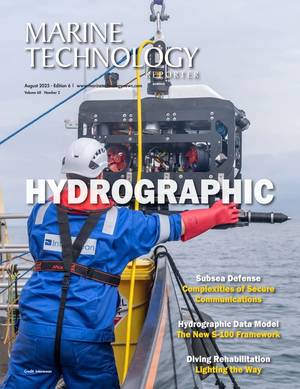Executive Director of PEO UWS Stresses Importance of Submarines at NUWC Division Newport
During his visit to the Naval Undersea Warfare Center (NUWC) Division Newport on May 19, Executive Director Mike McClatchey, a member of the Senior Executive Service, Program Executive Office, Undersea Warfare Systems (PEO UWS), emphasized the critical role the submarine platform and warfare center play in safeguarding our country.
“The submarine is our nation’s vanguard, and it is the most important platform to strategic deterrence,” McClatchey said. “The submarine force and the undersea domain are what makes our adversaries say, ‘not today.’ All those capabilities that make the submarine a warfighting platform are within the PEO UWS portfolio."
In his role, McClatchey is responsible for more than $25 billion in acquisition, research, development, transition and sustainment of all undersea weapons, countermeasures, combat systems, artificial intelligence, training and sensor systems
McClatchey develops opportunities for undersea enterprise capabilities and cross-domain effects by guiding and integrating efforts across PEO UWS, Team Submarine and the undersea domain portfolio. He also serves as the Undersea Warfare Chief Technology Officer (USW CTO) Executive.
During his visit, McClatchey spoke to about 40 Division Newport scientists and engineers, as well as a handful of Team Submarine members, participating in Division Newport’s Submarine Combat Systems Course. The course provides students with an overall understanding of the submarine combat system and the factors that drive system capabilities.
Division Newport operates under the Navy Working Capital Fund (NWCF) model, which means it receives funds from multiple “customers” to execute tasking within its assigned mission. Those utilizing the NWCF model receive no directly appropriated funding and operate like a nonprofit business with a “customer-provider” relationship.
During his visit to Division Newport, McClatchey discussed several areas where Division Newport is meeting the needs of PEO UWS so that the organization accomplishes its priorities.
PEO UWS is working to build capacity to deliver torpedoes, countermeasures, payloads and sensors to the fleet, McClatchey said. It is increasing operational availability by reducing modernization, testing, training and deployment timelines. It also is expanding undersea dominance with faster deployment of enhanced capability through resilient and modern architecture.
McClatchey shared some undersea perspectives on Project Overmatch, a U.S. Navy initiative to connect and share information across the fleet and with other services as part of the Pentagon's broader Combined Joint All-Domain Command and Control (CJADC2) effort.
He also discussed how Team Submarine delivers a federation of independent electronics systems integrated into a common combat system, the submarine warfare federated tactical system (SWFTS). Hardware and software updates are conducted with the fleet at regular intervals, McClatchey explained, but lately there has been particular attention paid to modernizing SWFTS.
McClatchey addressed some current efforts in artificial intelligence (AI) and machine learning (ML), as well. Those include Project Harbinger to provide improved decision making for operators; SWFTS AI-enabled refactor pilot for software language modernization; SUB-S Interactive Electronic Technical Manual (IETM) efforts to integrate chat bot capabilities; and AUKUS common development environments.
“The bottom line is when it comes to AI and ML, there’s a lot of real capability there,” he said. “As we, the Navy, get better at it, there will be more opportunities there.”
As for torpedoes, McClatchey said “business is booming,” and the adversarial threat has necessitated exponential growth in lethality through investments in torpedo technology.
In closing, he encouraged those in attendance to continue to challenge assumptions to spur growth.
“Do your best and speak up. If someone is proposing something that doesn’t make sense, be confident enough to ask tough questions,” McClatchey said. “Not in a confrontational way, but we have to stop and ask why? It may be uncomfortable, but let’s have those conversations. We have to make each other stronger and build each other up.”

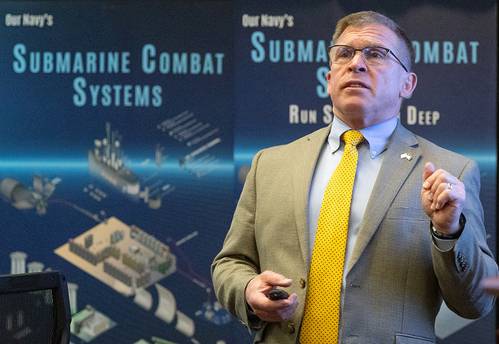
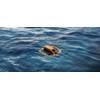

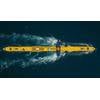
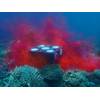

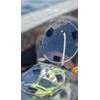







 August 2025
August 2025
